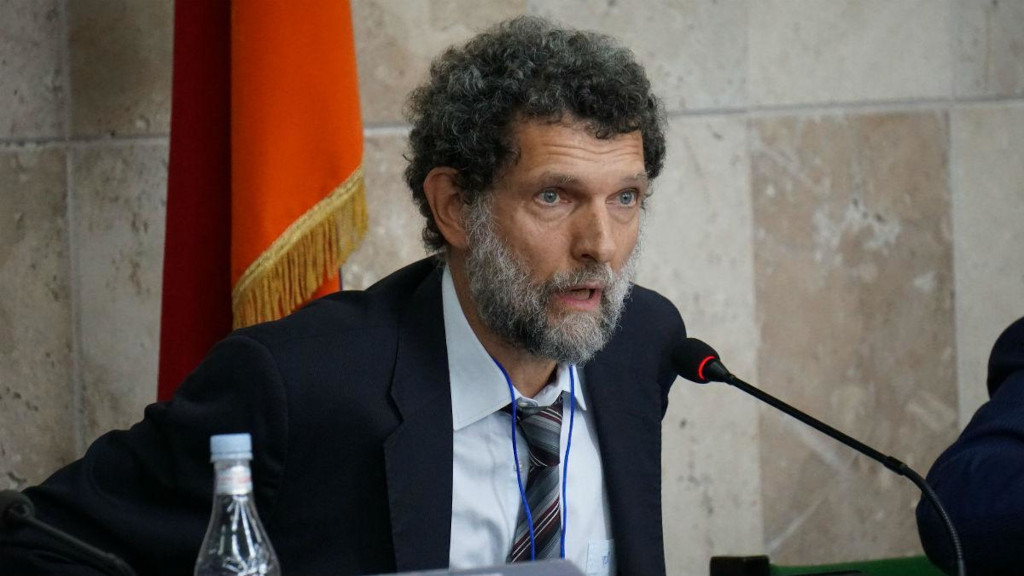Businessman and philanthropist Osman Kavala has commented on a recent judgment by the European Court of Human Rights (ECtHR) that said Turkey had failed to comply with a binding ruling of the court in December 2019 which found that Kavala’s detention violated his fundamental rights, saying that the ruling will empower Turkish judges who insist on abiding by the law.
An İstanbul court on April 25 sentenced Kavala, who had been behind bars without a conviction for over four years, to aggravated life and his co-defendants to 18 years each on charges of instigating the anti-government Gezi Park protests in 2013.
Turkey has refused to release Kavala despite the 2019 ECtHR ruling that found his detention was in pursuance of an “ulterior motive,” that of silencing him as a human rights defender. The non-implementation of the ruling prompted the Council of Europe (CoE) Committee of Ministers to launch an infringement procedure against Turkey in February, which is still ongoing.
The ECtHR judgment, which was issued on July 11 in response to a question by the Committee of Ministers as to whether Turkey had complied with the court’s 2019 ruling, found that Turkey had “failed to fulfill its obligation.”
“We welcome today’s judgment which provides a definitive answer on this point. We renew our call for the immediate release of Mr. Kavala,” the Committee of Ministers said.
Referring to the recent judgment regarding Turkey’s failure to release him, Kavala said in a statement released on Tuesday by his lawyers that he believed the decision would give power to the members of the judiciary who insist on acting in accordance with fundamental laws and principles despite political pressures.
“The decision of the European Court of Human Rights, which was announced yesterday, clearly revealed that the unlawful practices and political influences on the judiciary still continue and that the laws are used in an arbitrary fashion with political motives,” he said.
Following the judgment, Turkey’s Justice Ministry also issued a statement saying that the Strasbourg court’s move to bring forward the Kavala case would “negatively affect the credibility and reputation of the ECtHR, as well as increasing the public debate on the objectivity and impartiality of the ECtHR against Turkey.”
A leading figure in Turkey’s civil society, 64-year-old Kavala was born in Paris, educated in the UK and ran a cultural center before being thrust to prominence. He was accused of financing protests against then-prime minister Recep Tayyip Erdoğan’s government during large-scale protests in 2013 and involvement in a failed military coup in 2016.
Kavala’s plight had soured relations between Ankara and Western nations, and a diplomatic crisis was triggered last year when Turkey threatened to expel 10 Western ambassadors, including the US envoy, after they demanded Kavala’s release.



